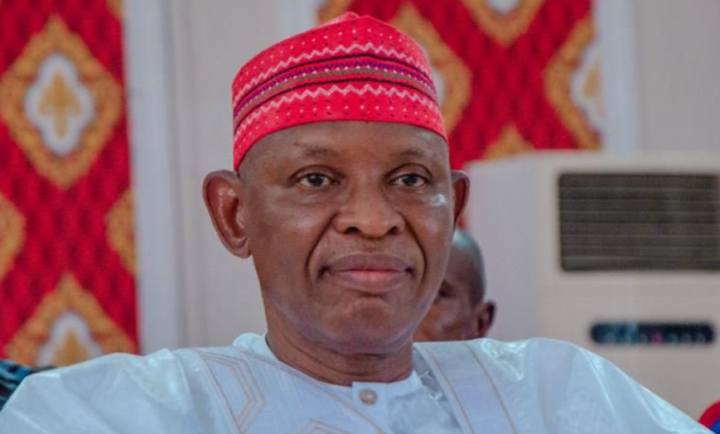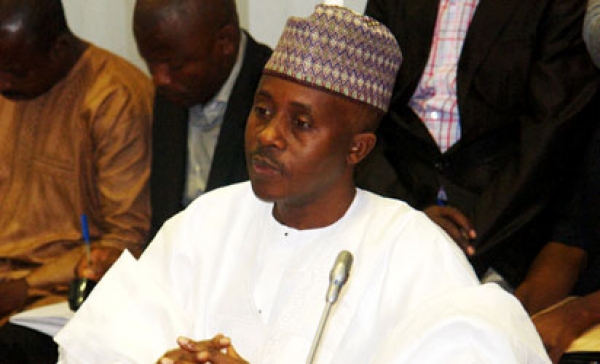PricewaterhouseCoopers (PwC), a professional services firm, has released its latest Nigeria economic outlook, highlighting seven key trends that will shape the nation’s economic trajectory in 2024.
In the report, released on Thursday, PwC projected Nigeria’s inflation will marginally decline, however, the company said the Russia-Ukraine war, amongst other factors, might fuel an upward swing.
Also, the report projected Nigeria’s gross domestic product (GDP) will rise by 3.1 percent but the poverty level in the country will increase to 38.8 percent in 2024.
The company said achieving sustainable growth in 2024 requires balancing ambitious fiscal reforms with effective budget implementation.
Advertisement
PwC also stressed the importance of aligning fiscal and monetary policy to stabilise prices and reach target goals.
Here are the seven key trends that will shape Nigeria’s economy this year, according to PWC.
BALANCING AMBITION WITH BUDGETARY IMPLEMENTATION
Advertisement
PwC said Nigeria’s ambitious revenue targets for 2024 depend heavily on oil prices and reform implementation, adding that historically, actual revenue realised has averaged less than 70 percent of the total budget.
“Achieving budgeted oil revenue in 2024 will depend on OPEC oil production quota, international oil prices, improved security in the oil-producing regions, and geopolitical factors,” the company said.
The organisation said the federal government’s proposed fiscal reforms have the potential to boost non-oil revenue and shape the economy, but success hinges on effective budgeting and execution.
“If the fiscal reforms proposed by the Committee are effectively implemented, it could lead to improved fiscal performance, which may enhance economic growth and development,” the report said.
Advertisement
“Some of the reforms related to fiscal policy and governance include – addressing duplication of functions in public service, ensuring prudent management of government assets, the introduction of spending framework for subsidy removal and forex reform windfall, and creating a national portal for tracking government spending at all levels.”
FINDING THE RIGHT FRAMEWORK, INSTRUMENTS TO ACHIEVE PRICE STABILITY
According to the report, Nigeria’s central bank has deployed several monetary policy tools and instruments to achieve price stability, however, despite the deployment, the inflationary pressure has persisted.
“To succeed, the Central Bank of Nigeria (CBN) must independently pursue inflation goals, emphasising inflation control, and maintaining a stable financial system,” PwC said.
Advertisement
“Finding coherence and alignment between fiscal and monetary policy to stabilise prices may enable the achievement of statutory and policy targets in 2024. CBN clarity of policy, transparency of market operations and consistent communication will enhance stability to exchange rate price discovery and market activities.”
‘INVESTOR’S WILL BE CAUTIOUSLY OPTIMISTIC’
Advertisement
In 2024, PwC predicted that foreign portfolio investment flows to the capital market may remain cautious due to residual challenges.
The report said investors’ outlook may be dampened by downgrades from FTSE Russell and MSCI, specifically due to delays in capital repatriation.
Advertisement
“Despite this, Moody’s, Fitch, and S&P maintained a speculative credit rating due to drawbacks on reforms and several fiscal challenges that persist,” PwC said.
“FDI flows are expected to improve in 2024 driven by notable expansion in the growing ICT and Manufacturing sectors.
Advertisement
“The capital market performed well in 2023 gaining 46% despite sustained inflation and FX liquidity challenges. Investors may remain cautious due to fiscal and monetary reforms to address inflation and FX illiquidity.
“Governance credibility, policy credibility and institutional credibility of key institutions, especially in communicating and implementing key policy changes may continue to impact investor confidence.”
UNDULATING PATHWAYS TO UNLOCKING PRODUCTIVITY IN THE ECONOMY
In the report, PwC predicted that limited fiscal space for public investment and the difficulty in attracting private investments will constrain the ability to make essential infrastructure improvements.
“Infrastructure funding may remain insufficient in 2024. The allocated infrastructure spending budget for 2024 is ₦1.32 trillion, falling short of both the World Bank’s suggested 70% infrastructure-to-GDP benchmark (currently at 30%) and the yearly $150 billion requirement specified in the National Integrated Infrastructure Master Plan for 2021- 2025,” the company said.
“Security spending in the past nine years amounted to ₦14.8 trillion. Despite increased spending, insecurity remains a challenge and jeopardises national stability, negatively affects economic activities and undermines investor confidence.”
PERSISTING VULNERABILITY TO EXTERNAL PRESSURES WITH POTENTIAL ‘SHOCKS’
The company also said geopolitical, economic, environmental, political, and trade trends will shape the dynamics and outlook for the Nigerian economy in 2024.
PwC said if the Russia-Ukraine war intensifies, it could lead to increased global energy and commodity supply risks.
“Nigeria may experience increased inflation and food security challenges due to grain import disruptions and high petroleum product cost,” the report said.
“The outcome of elections in several countries globally, especially USA, UK, and Taiwan may shape the dynamics of trade and capital flows around the world in 2024.”
PwC said in the third quarter (Q3) of 2023, the trade balance increased by 361 percent to N1.89 trillion surplus from a deficit of N409.3 billion in Q3 2022.
This increase was said to be driven by a 44 percent rise in crude oil exports which accounted for 82.5 percent of total exports in Q3 last year.
The trade surplus, according to PwC, will likely be sustained in 2024 but remains vulnerable to international oil prices and markets due to the overreliance on crude oil.
CONSUMERS MAY LIKELY ADJUST BETTER TO EVOLVING POLICY AND MACRO REALITIES
PwC predicted consumer spending may be pressured in 2024 due to rising prices of goods and services — increasing food and transportation costs — coupled with lower disposable income.
However, the company said private consumption is expected to be marginally better than in 2023.
“Poverty levels are projected to increase to 38.8% in 2024. Despite the low unemployment rate in the country, low consumer spending and purchasing power remain an issue, especially in the absence of a commensurate increase in the minimum wage to mitigate the inflationary growth in the economy,” PwC said.
IMPROVED SECTORAL DEVELOPMENT RIDING ON REFORMS
PWC predicted that GDP may grow marginally by 3.1 percent this year on the back of sustained policy reforms.
“The growth projection is driven by ongoing reforms, recovering oil production, and a proactive policy environment,” the company said.
“Possible downside risks to this projection include sustained rise in fiscal debt, elevated interest rates, high inflationary levels, foreign exchange liquidity pressures, high exposure to shocks in the global value chain, poor non-oil revenues and sector development.”
In terms of sectoral growth, PwC said the main drivers of GDP growth in the last 12 months have been the financial services, information and communication, and utilities sectors.
PwC predicted these sectors will continue to drive growth in the short term, adding sectoral growth will be driven by a combination of demand dynamics, investment, government reforms and trade dynamics.







